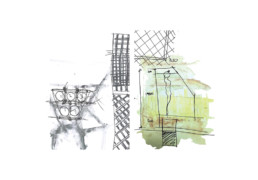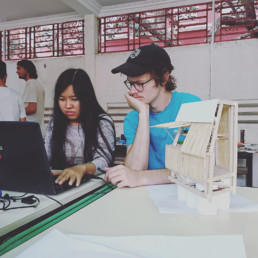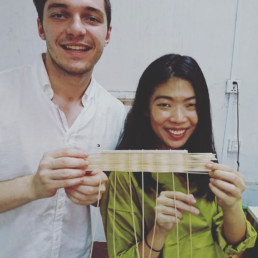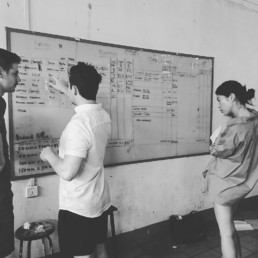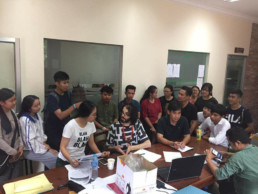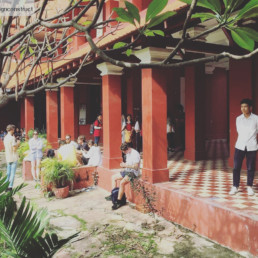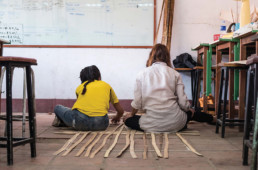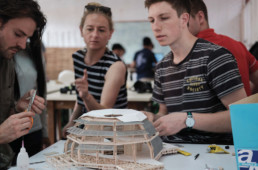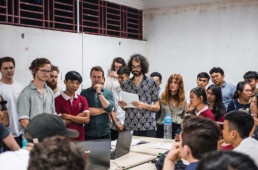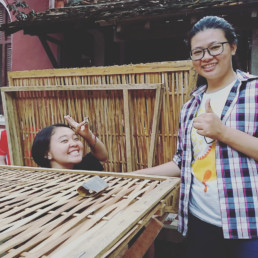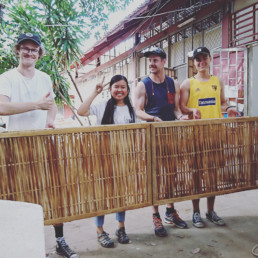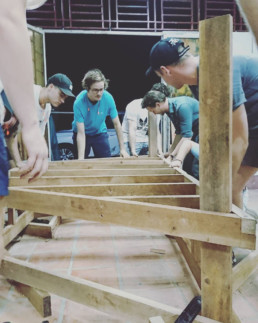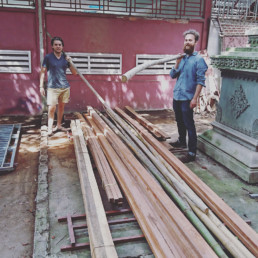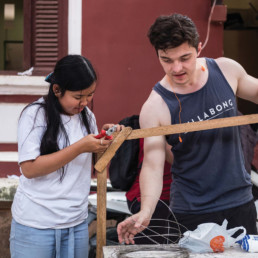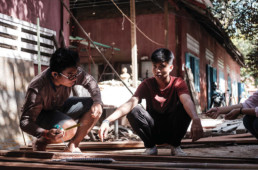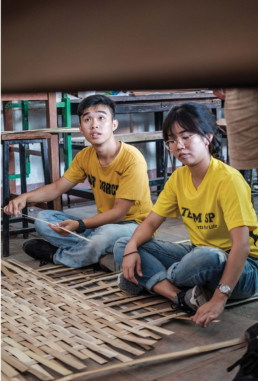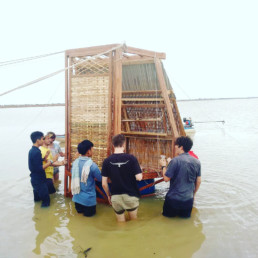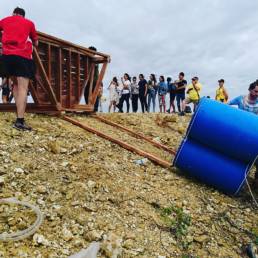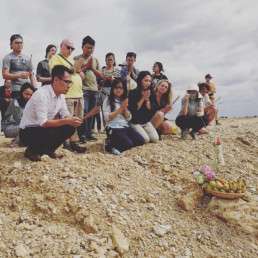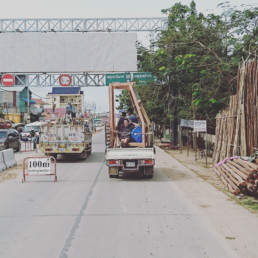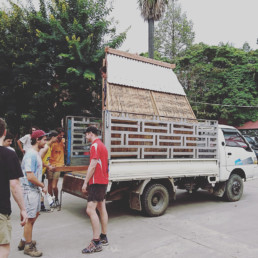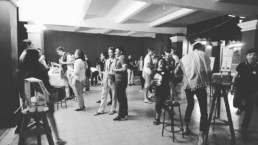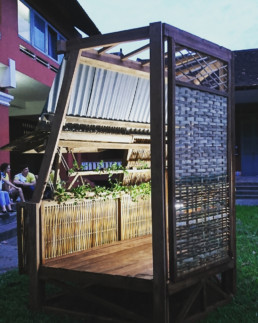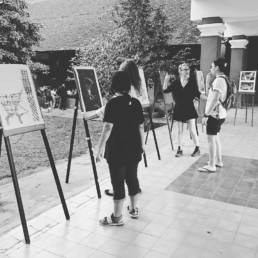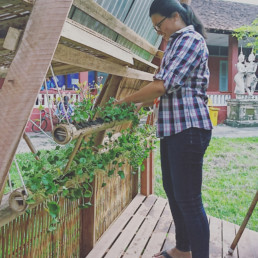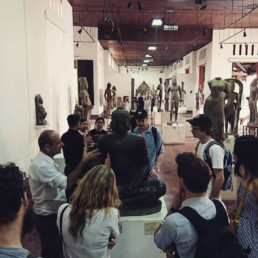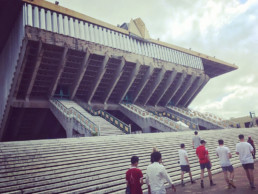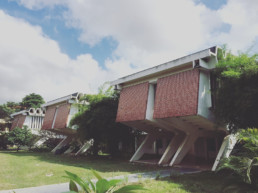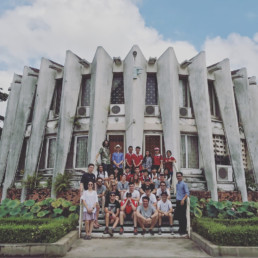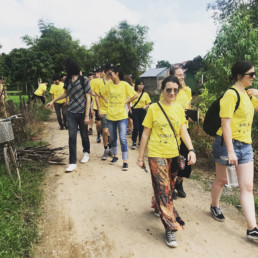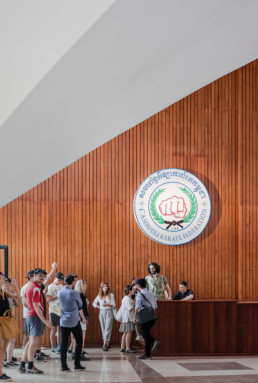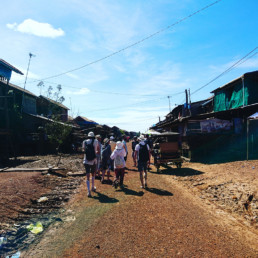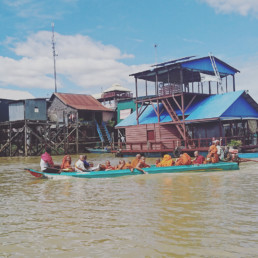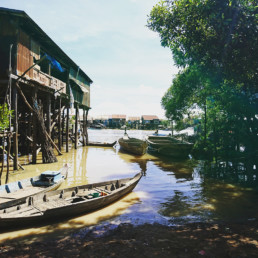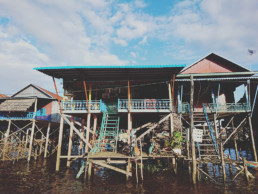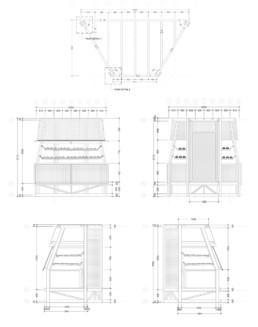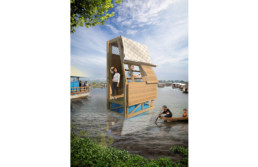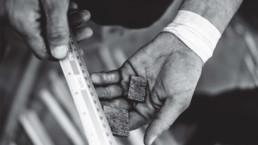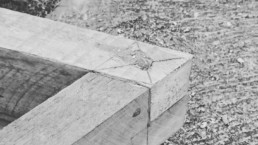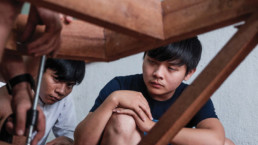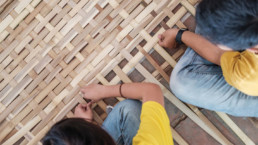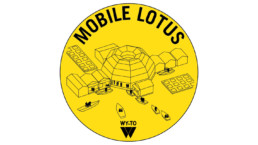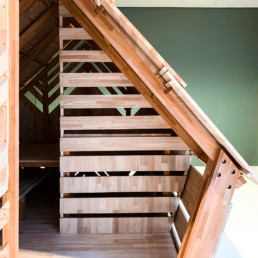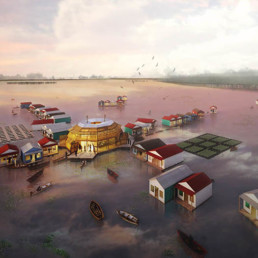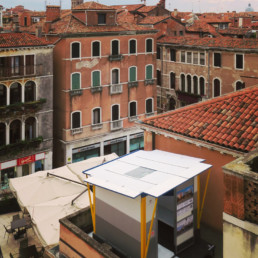Type
Development
Program
Sustainable architecture – Mobile Eco-clinic
Location
Tonle Sap Lake, Cambodia
Timeline
Workshop #01 20/11/2017 – 30/11/2017
Prototype Area
2.5m2
Partners
Royal University of Fine Arts, Phnom Penh
The University of South Australia
Glasgow School of Art, Singapore
How can the architects, engineers and designers of tomorrow use their talents to contribute towards a better living environment where Humanity and Nature co-exist in a harmonious balance?
The Mobile Lotus aims to provide holistic solutions to the challenges that are faced by the floating communities living on Cambodia’s most precious resource; The Tonlé Sap lake UNESCO Biosphere Reserve. It is a floating eco-clinic that supports the local infrastructure, enhancing access regular healthcare and health education for the lake’s residents.
The project aims to set a benchmark for sustainability by highlighting the unique bio-diversity of the Tonlé Sap Lake and the environmental challenges it currently faces. Built of local materials and easily assembled, the lotus inspired design offers a community platform. Mobile, it reaches remote floating villages to treat and inform about common illness, sanitation and remedies of supporting the ecosystem. Introducing ideas of sanitation, waste treatment, disease prevention and demonstrations of sustainable living, into a one-stop platform. Mobile Lotus aims to empower lake inhabitants with the relevant tools to support both themselves and the health of the Tonlé Sap lake.
WY-TO successfully held the inaugural Mobile Lotus Construction Workshop hosted by The Royal University of Fine Arts in Phnom Penh.
In November of 2017, the WY-TO team coordinated a collaboration of 3 countries from around the globe. WY-TO invited 20 architecture and interior architecture students from The Glasgow School of Art, Singapore and The University of South Australia to participate in the 10 day research design and construct workshop with 20 local students from RUFA. Participants researched, designed, built and tested a mock-up of the floating platform, facade system, super structure and interior design.
The Mobile Lotus Workshop was crafted as a platform for exchange where participants immersed themselves into the Cambodian context. History, vernacular, culture, community, traditional customs and ecological challenges empowered workshop participants to produce a successful result for the Mobile Lotus test mock-up. Embedded into the program of the Mobile Lotus Workshops, is a curated series of field trips, industry presentations and peer reviews where participants were able to visit traditional floating villages as well as many historical, cultural and architecturally significant sites to study, absorb and transfer these vernaculars into the Mobile Lotus. These activities are themed and aligned to the progression of the participants’ experience.
The Mobile Lotus Workshops were crafted as a platform for international design exchange.
Local and international participants were encouraged to share ideas, design sensibilities and their cultures from around the world. To aid this exchange, participants were provided the opportunity to immerse themselves into the Cambodian context. History, tropical vernacular, local culture, traditional customs and sustainability were all key thematics that empowered workshop participants to produce a sensitive and culturally appropriate result for the Mobile Lotus platform.
Extracurricular activities served to stimulate discussion between participants and triggered research avenues as they developed their design solutions. A hands-on workshop experience was crafted to equip participants with an advanced understanding of the innovative, changing world of sustainable and cultural design.
Each team undertook a particular design focus: Research and design of the floating Base, design and detailing of the superstructure incorporating traditional construction techniques, materiality and function of the woven bamboo facade and the Interior design, textures, ergonomics and fit-out for a clinical purpose.
In alignment with the research and field trips undertaken by the participants, traditional techniques were explored in the design of the Mobile Lotus. Extensive testing of locally available materials was done to understand their inherent properties and optimal use within the Mobile Lotus. For example, various traditional bamboo weaving techniques were tested; resulting in finer bamboo weaves for textural purposes such as balustrade and rigid bamboo weaves for privacy or high impact uses such as partitions and shutters, as students identified when researching the traditional vernacular.
In a successful test, the Mobile Lotus mock-up was able to easily take to the water. This was an important milestone for the workshop as it validates the flotation device and construction method while presenting areas of optimisation to be developed in future workshops.
Wrapping up the Mobile Lotus Workshop after an intense ten days of design was a moment of celebration. Local dignitaries and design industry professionals were invited to visit the exhibition where they would be taken through the workshop experience. The exhibition showcased the research through examples of sketches, diagrams, scale models, technical drawings, photography, joinery, woven bamboo and the final mock-up.
Throughout 2018, WY-TO will continue to refine the project direction and its response to cultural and contextual needs by engaging with local communities, through more research, workshops and ultimately the final construction of the Mobile Lotus. WY-TO and its ongoing collaborators will work together to develop a unified and culturally appropriate platform that supports and enhances the existing healthcare network of the Tonlé Sap lake and contributes to the ongoing preservation of the UNESCO Biosphere Reserve.
The Mobile Lotus Workshops are an independent and self-developed transformative work born after participating in a 2015 design competition based on the Tonle Sap by eleven magazine.
Photos provided by Yann Follain, Adam Jack, Nick Frayne, Nadia Wagner and Joti Weijers-Coghlan
IN DEPTH
RELATED PROJECTS
RELATED MEDIA
PUBLICATIONS
InDesignLive SG
Mobile Lotus Design and Build Workshop
